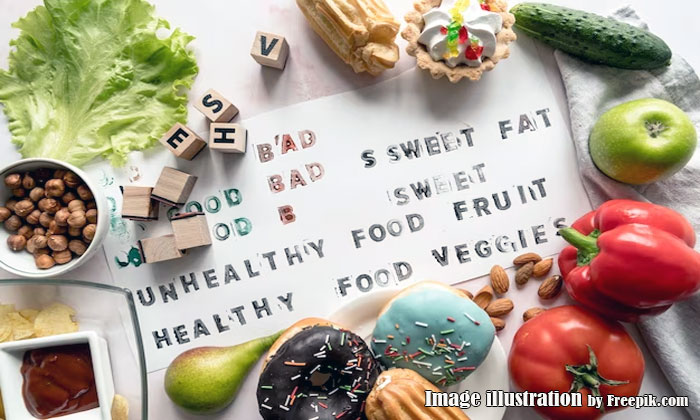
Health advice is everywhere, from friends and family to social media and even the internet. With so much information circulating, it can be difficult to know what is true and what is not. Many health myths are widely believed but have no scientific backing. In this article, we will debunk some of the most common health myths to help you make informed decisions about your well-being.
1. Myth: You Should Drink 8 Glasses of Water a Day
The “8×8 rule,” which suggests you should drink eight 8-ounce glasses of water per day, is one of the most pervasive health myths. While staying hydrated is important for health, the amount of water you need depends on various factors such as age, sex, activity level, and climate.
The Truth:
The National Academies of Sciences, Engineering, and Medicine provides a more detailed recommendation. For most people, men should aim for about 3.7 liters (125 ounces) of total water intake daily, and women should aim for about 2.7 liters (91 ounces), which includes all fluids consumed, not just water. Also, foods like fruits and vegetables contribute to your hydration needs.
2. Myth: Eating Late at Night Leads to Weight Gain
Many people believe that eating late at night leads to weight gain because your body supposedly doesn’t burn calories while you sleep. However, the timing of meals is less important than the overall number of calories consumed during the day.
The Truth:
Weight gain occurs when you consume more calories than your body needs, regardless of the time of day. Research has shown that the body processes food in a similar manner throughout the day, and late-night eating doesn’t necessarily lead to weight gain if it doesn’t push you past your caloric needs. However, eating large, heavy meals before bed may disrupt sleep, which can, in turn, affect your metabolism.
3. Myth: You Can Detox Your Body with Cleanses and Juices
Detox diets, juices, and cleanses promise to rid your body of toxins and leave you feeling rejuvenated. These programs often claim that your liver and kidneys need help processing toxins, and these products can aid in detoxification.
The Truth:
Your body is already equipped with organs like the liver, kidneys, and digestive system that effectively detoxify on their own. A healthy diet rich in fruits, vegetables, and fiber naturally supports these organs. While consuming healthy foods and staying hydrated is beneficial, there is no need for expensive detox products. Instead, focus on eating a balanced diet and staying active to support your body’s natural detoxification processes.
4. Myth: You Can Spot-Reduce Fat in Certain Areas of Your Body
A popular belief is that by targeting certain areas of your body with exercises (e.g., doing crunches to reduce belly fat or squats to eliminate thigh fat), you can spot-reduce fat.
The Truth:
Spot reduction is a myth. While exercises like crunches can help strengthen muscles in a specific area, they do not burn fat directly from that area. Fat loss occurs through a combination of overall caloric deficit (burning more calories than you consume), cardiovascular exercise, and strength training. When you lose fat, it tends to come off from all over your body, not just one localized area.
5. Myth: Carbs Make You Gain Weight
Carbohydrates are often demonized as the main culprit behind weight gain, with many people opting for low-carb or no-carb diets. However, carbohydrates are an essential nutrient that provides energy for the body.
The Truth:
Carbs are an important part of a balanced diet. It’s not the carbs themselves that cause weight gain, but the type and quantity of carbs you consume. Whole grains, fruits, and vegetables are healthy sources of carbohydrates that provide fiber, vitamins, and minerals. Refined carbohydrates, such as white bread and sugary snacks, can lead to weight gain if consumed in excess, but when eaten in moderation and as part of a balanced diet, carbohydrates are not the enemy.
6. Myth: Vaccines Cause Autism
One of the most harmful health myths, especially for public health, is the false claim that vaccines cause autism. This myth originated from a 1998 study by Andrew Wakefield, which has since been discredited and retracted due to flawed methodology and ethical violations.
The Truth:
Numerous studies have shown that vaccines do not cause autism. Vaccines are safe, effective, and crucial for preventing diseases such as measles, polio, and whooping cough. The connection between vaccines and autism is a baseless myth that has been debunked by the scientific community. Vaccines save lives and are an essential part of public health.
Also read other lifestyle articles on Destyless:
- How to Boost Your Immune System Naturally
- The Importance of Drinking Enough Water
- 10 Simple Habits for a Healthier Life
7. Myth: Fat-Free Foods Are Healthier
Fat-free foods are often marketed as healthier alternatives, but just because a product is labeled “fat-free” does not mean it is automatically better for you. Many fat-free or reduced-fat products contain added sugars, sodium, or artificial sweeteners to compensate for flavor loss, which can be detrimental to health.
The Truth:
Not all fats are created equal. Healthy fats, such as those found in avocados, nuts, seeds, and olive oil, are essential for your body’s overall health. Rather than focusing on fat-free products, it’s more important to choose whole, minimally processed foods that provide a balance of healthy fats, proteins, and carbohydrates.
8. Myth: You Need to Wait 30 Minutes After Eating Before Swimming
This myth suggests that swimming immediately after eating will cause cramps, potentially leading to drowning. While this idea has been passed down for generations, it is not based on science.
The Truth:
There is no evidence to support the idea that eating before swimming increases the risk of cramps or drowning. Your body is capable of digesting food while swimming. However, if you eat a very large meal, you might feel sluggish or uncomfortable while engaging in physical activity, so it’s a good idea to wait a short time (about 20 minutes) before engaging in vigorous exercise.
9. Myth: Eating Too Much Protein Damages Your Kidneys
Many people believe that consuming too much protein can damage your kidneys or lead to kidney disease. While it is true that kidney disease patients must be cautious about their protein intake, this is not an issue for most healthy individuals.
The Truth:
For healthy people, a high-protein diet does not harm the kidneys. The kidneys efficiently filter out the byproducts of protein metabolism. However, if someone has pre-existing kidney conditions, a high-protein diet may exacerbate the issue. As with all nutrients, moderation is key.
10. Myth: All Natural Products Are Safe
Many people assume that because a product is “natural,” it must be safe and effective. While some natural products do have therapeutic benefits, others can be harmful or interact negatively with medications.
The Truth:
Just because something is natural doesn’t mean it is automatically safe or without side effects. For example, some herbal supplements can interact with prescription medications or cause allergic reactions. Always consult with a healthcare professional before using natural remedies, especially if you have health concerns or take other medications.
Conclusion
Health myths are common and can often lead to confusion or poor decision-making when it comes to taking care of your body. By understanding the facts behind these myths and relying on scientific evidence, you can make informed choices that support your overall health and well-being. Always be cautious of unverified claims and seek advice from qualified healthcare professionals when in doubt.






